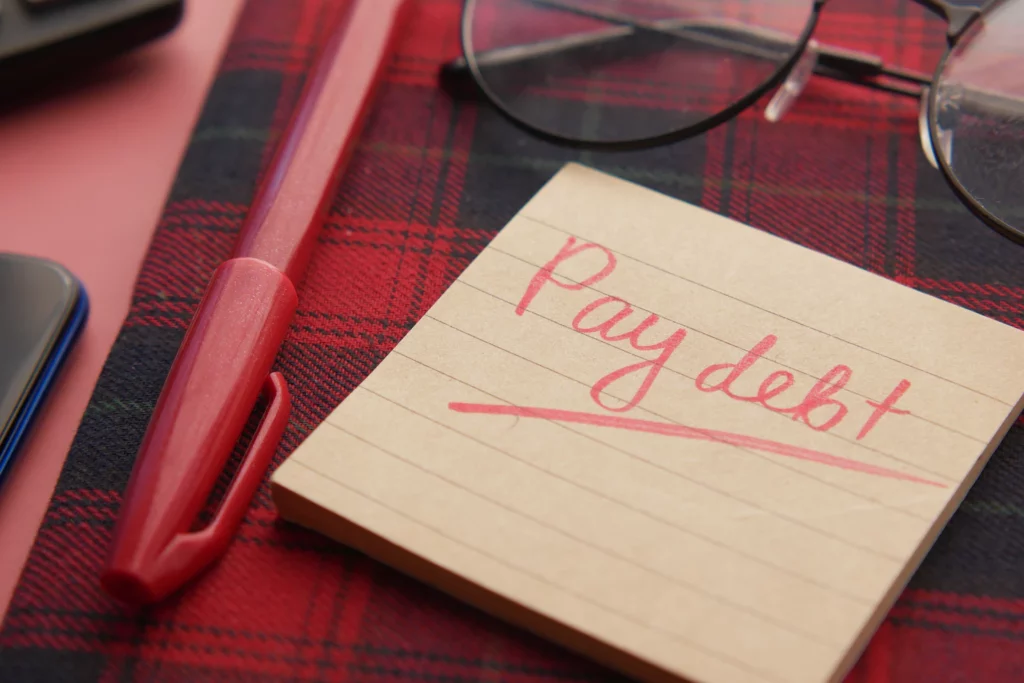Although debt may seem like a negative thing, it doesn’t have to be all bad news. Debt can actually help you finance big purchases that you may not be able to afford upfront, but it’s important to only go into debt for something worthwhile and avoid anything that could put you in financial jeopardy. People will often have a mixture of good and bad debt
What Would Be Considered Good Debts?
Good debts are defined as a financial obligation that will improve your future or make you financially better off long-term. For example, taking out a mortgage to purchase property could be considered good debt.
Although the initial investment of a mortgage can be more expensive than renting, over time it will pay off. Once the mortgage debt is paid in full, you own the property outright and can live without monthly payments. If purchased as an investment, you could even make a profit by selling it later on.
Student loans often fall into the “good debts” category. This is because job prospects are usually better for graduates, meaning there’s a higher chance of having a larger salary. The same principle can be applied to investing in other types of further education or professional development courses.
If you’re willing to invest in your business and watch it grow, that would be considered good debts. With a sound plan and enough dedication, your company could one day bring in significantly more money than the initial loan used for growth.
Credit experts at Equifax define good debts as a loan taken out with thoughtful consideration and that is affordable based on your credit limit and budget. Furthermore, they believe that staying within your credit limit and paying back debt punctually each month can have a positive impact on your credit report.
What Would Be Considered Bad Debt?
Good debts is beneficial and doesn’t require a lot of resources to repay, while bad debt does the opposite. Bad debt can make it difficult or even impossible to maintain your lifestyle or pay your bills on time, which is why it’s important to avoid if possible.
Debt is usually labeled as “bad debt” when it becomes a financial burden to the individual. Many unnecessary expenses — like cars or luxury vacations — are also considered bad debt because they lose value immediately or don’t have any worth.
You should never borrow money to repay debt, unless you consolidate your debts and no longer spend on the lines of credit you have cleared. However, if you are struggling to reach the end of every month and have tried budgeting unsuccessfully, take a look at our information on Debt Management Plans or contact us for more help.
How Much Debt Is Too Much Debt?
To manage your finances effectively and determine whether you should take out a loan or save up for a purchase, calculate your debt-to-income ratio (DTI).
A debt-to-income ratio is a number that both lenders and borrowers should be interested in. Lenders use this number to help them make decisions about lending money, but it can also help you understand your own finances better! Knowing your DTI will let you see where you might need to cut back on spending or where you have some room in your budget.
How to Calculate Debt to Income Ratios (DTI)
- To calculate your Debt-To-Income (DTI) ratio, first add up all of your monthly debt payments. This includes mortgage payments, personal loans, store credit, student loans, credit card debt and any other form of debt. If you’re considering taking out a new loan, it might be helpful to include an estimated payment amount for that loan in this total. That way you’ll get a more accurate idea of what your DTI will be after the new debt is added.
- Now add up your total income. Include your gross monthly income and any benefits you receive such as child benefit and Universal Credits.
- Divide your monthly debt by your monthly income and multiply by 100. The result is your DTI as a percentage.
Average Household Debt in the UK
According to the UK Debt Service (March 2022) the average total debt level of households stood at £63,582 including mortgages. It also found that the average level of unsecured personal debt was £3,743 per adult.
If you are concerned about your level of unsecured debt and your ability to keep up with your repayments, don’t hesitate to contact Become Debt Free today to chat with one of our friendly advisors, who will assess your situation and give professional, non-biased guidance.
How to Manage Debt
Although it may be tough, managing debt is something that everyone must do at some point in their lives. Unfortunately, there are usually unforeseen circumstances that make this more complicated than we would like – such as a job loss or an emergency expense.
To get your finances back on track, use online budgeting tools and ideas. You can also request a free callback from one of our experts to get more personalized guidance.
How to Get Out of Debt
If you are struggling with debt problems and maintaining payments to things such as car loans, personal loan debt and credit cards etc. Or, if you have already defaulted on your debt, contact Become Debt Free today. We can provide debt advice to help you get out of debt and back on track.
If you’re looking for help to get out of debt, our friendly guides are here to explain your options and offer support. There are many options available such as a Debt Management Plan, Bankruptcy, an Individual Voluntary Arrangement, a Debt Relief Order any more. We’ll help you find a debt solution that fits your needs so that you can start on the path to financial freedom. Give us a call today on 0113 237 9503 or complete the online form.








